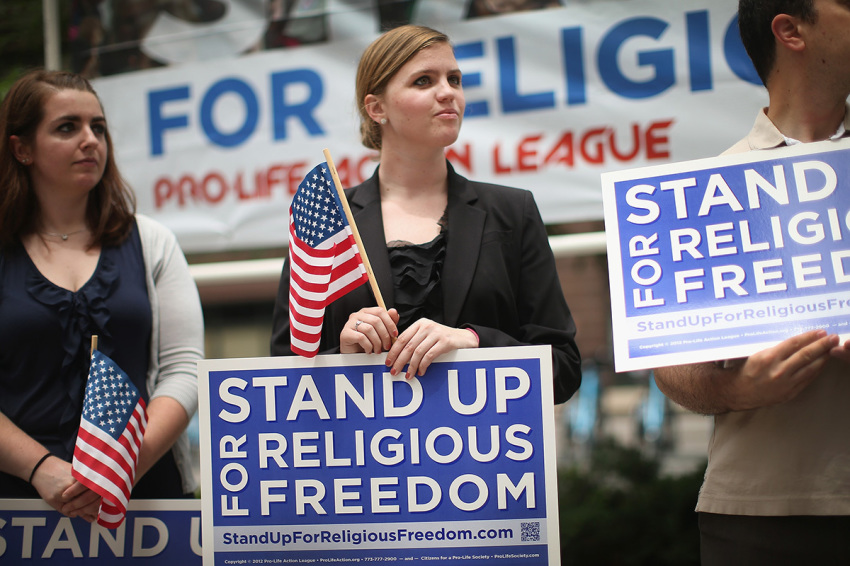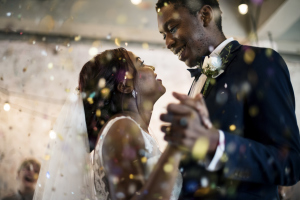Most states have inadequate religious liberty protections, but this state is the worst

A new report reveals that most U.S. states have inadequate religious liberty protections as advocates raise concerns about what they view as the federal government’s hostility toward religious liberty.
Religious Liberty in the States, a project of First Liberty Institute’s Center for Religion, Culture and Democracy, has ranked every state based on its safeguards for religious liberty. Its report unveiled Wednesday outlined each state's rankings based on the number of religious liberty safeguards present there.
The state-level safeguards that Religious Liberty in the States examined include the opportunity forabsentee voting to allow religious people to participate in elections on religious holidays, exemptions from childhood immunization requirements and the existence of a Religious Freedom Restoration Act.
The rankings also reflected the ability of healthcare providers to refuse to provide services that contradict their religious beliefs, specifically focusing on abortions, sterilizations and contraception.
Additionally, the rankings reflect whether or not a state has an exemption for employers who do not want to abide by a mandate requiring them to cover contraceptives in their employer-sponsored health insurance plans and whether or not religious officials, public officials and/or businesses can refrain from participating in a same-sex wedding if doing so violates their religious beliefs.
The scores that determined the rankings reflect the percentage of safeguards a particular state has in place. Mississippi received the highest religious liberty score, as it contains 82% of safeguards. On the other hand, New York had the lowest religious liberty score, containing 16% of safeguards.
In Mississippi’s case, the state includes nine of the 11 safeguards classified as essential for religious liberty, only lacking absentee voting and religious exemptions for vaccination requirements. By contrast, New York only has two of the 11 safeguards: protections for religious healthcare workers who do not want to perform abortions and religious officials who do not want to perform same-sex marriages.
West Virginia and California join New York in the bottom three states for religious liberty, while Illinois ranks slightly behind Mississippi. Only nine states had a score of 50% or higher. In addition to Mississippi and Illinois, New Mexico, Florida, Washington, Utah, Tennessee, Maryland, Idaho and Kansas had 50% or more of the religious liberty safeguards in place.
The religious liberty safeguard present in most states is a religious exemption to childhood vaccination requirements, which only five states do not have: Mississippi, Maine, California, West Virginia and New York. Forty out of 50 states allow absentee voting for religious reasons, while 33 of the 50 states have religious exemptions to the health insurance mandate requiring employers to cover their employees’ contraceptives in healthcare plans.
Additionally, 23 states have some form of the Religious Freedom Restoration Act on the books, while the remaining 27 do not. Mississippi has the maximum number of religious exemptions for healthcare workers in place, while New Hampshire and Vermont have no such protections in place. Mississippi also has the maximum number of exemptions in place for religious officials, public officials and businesses that do not want to participate in same-sex weddings.
By contrast, 30 states have no protections for those who object to participating in same-sex weddings for religious reasons. Only Mississippi, Illinois, Florida, Washington, Utah, Maryland, Connecticut, Maine, Oklahoma, Rhode Island, Minnesota, Delaware, Texas, Hawaii, North Carolina, Nevada, New Hampshire, Vermont, California and New York provide some level of protection for those who see participation in a same-sex wedding as contrary to their religious beliefs.
The publication of the Religious Liberty in the States report comes at a time when several Americans have found themselves in court for refusing to participate in same-sex weddings.
Notable examples of conscientious objectors include Colorado baker Jack Phillips and Washington state florist Barronelle Stutzman, both of whom have faced years of litigation for refusing to provide their services for same-sex marriages.
Earlier this year, the Biden administration released a proposed rule that would characterize a refusal to perform a “pregnancy termination” as a form of discrimination based on sex. If enacted, this rule would force doctors to perform abortions even if doing so would contradict their sincerely held religious beliefs.
At the federal level, Democratic lawmakers are working to secure the passage of the Equality Act, which would codify nondiscrimination protections for the LGBT community into federal law by formally extending the definition of discrimination based on sex to include sexual orientation and gender identity. Critics of the measure worry about its implications for religious liberty, specifically the ability of faith-based organizations to hire only those who live in accordance with their religious beliefs.
While the bill has passed the Democrat-controlled House of Representatives, it has stalled in the evenly divided Senate.
Religious liberty advocates and faith-based organizations have offered similar warnings about the Respect for Marriage Act, legislation introduced to codify a right to same-sex marriage into law. The bill passed the House with support from 47 Republicans but is still awaiting action in the Senate.
Ryan Foley is a reporter for The Christian Post. He can be reached at: ryan.foley@christianpost.com



























